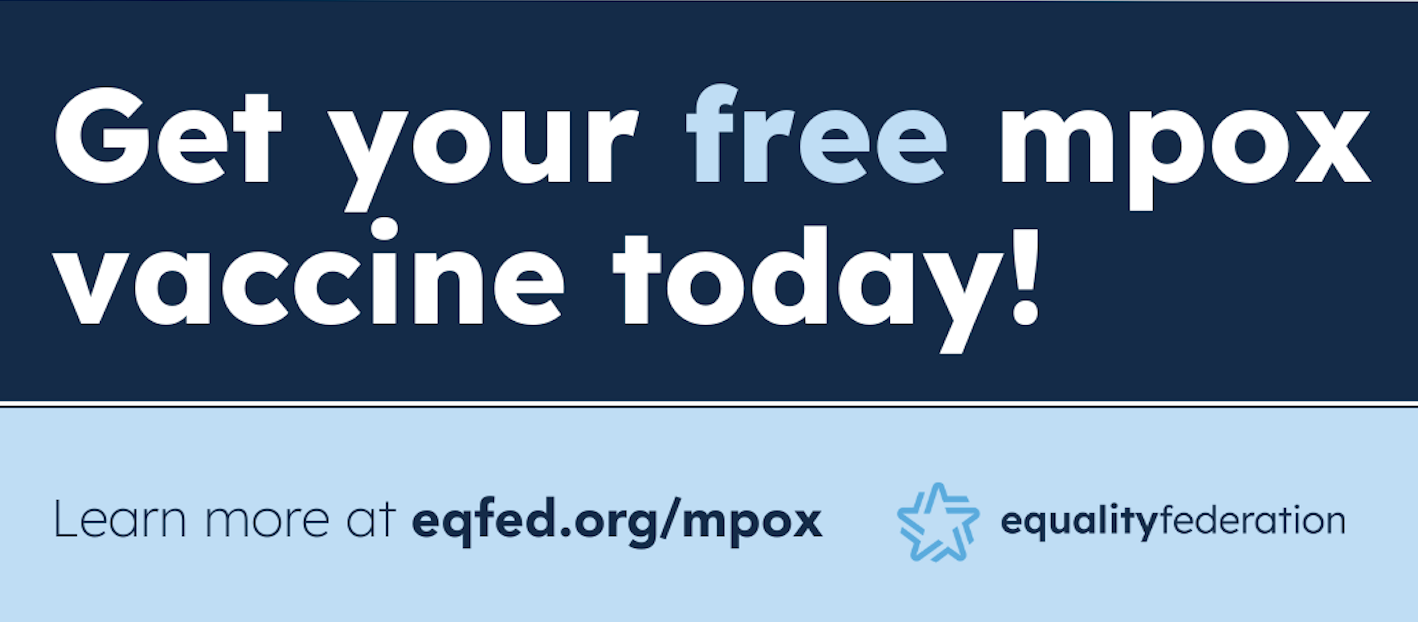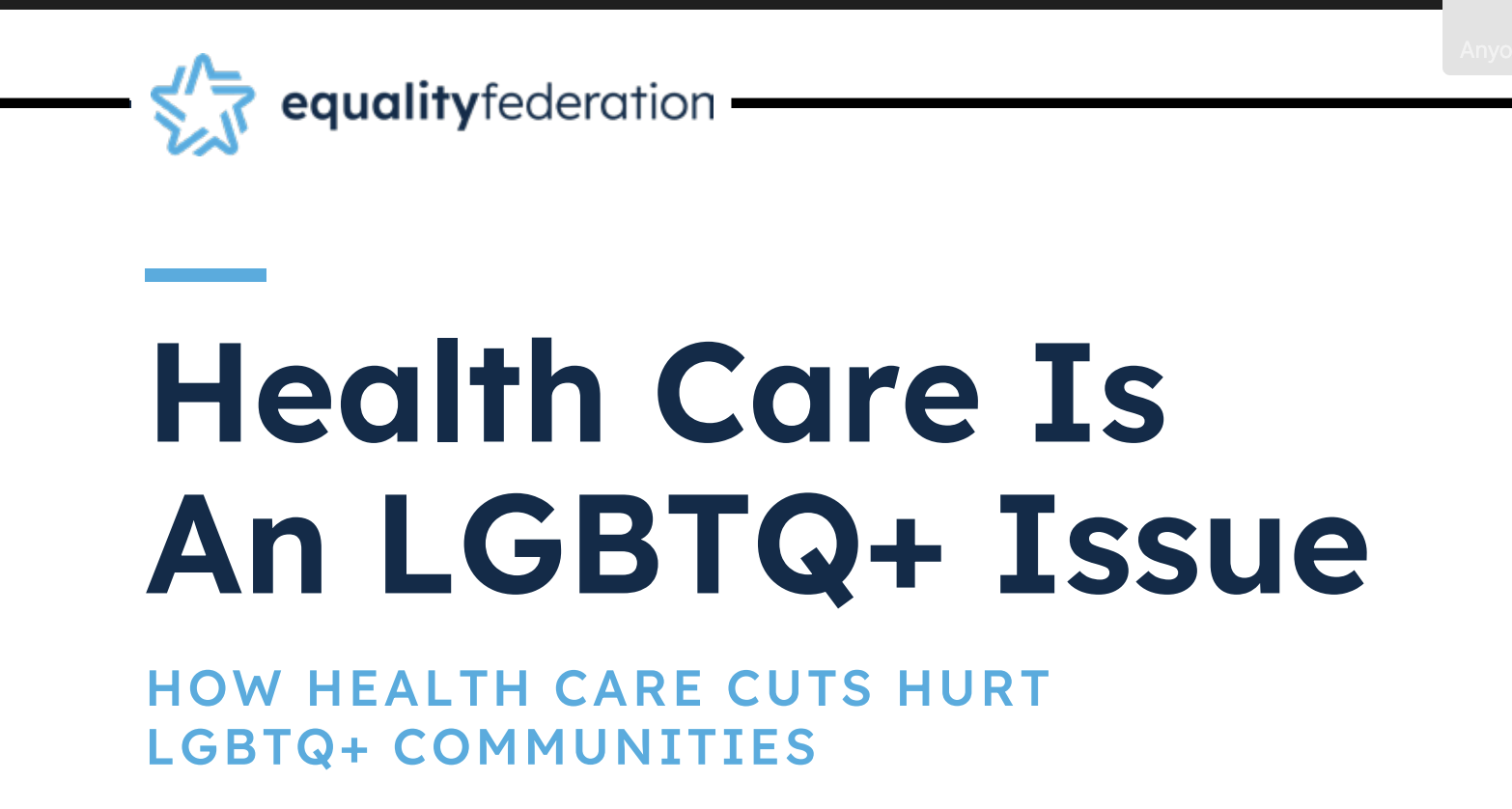The Most Significant LGBTQ Equality Case of Our Time?

Equality Federation joined an amicus brief (see below) filed by Lambda Legal in what is shaping up to be one of the most significant LGBTQ equality cases of our time, Masterpiece Cakeshop v. Colorado Civil Rights Commission. Don’t be fooled by the name or the right-wing’s arguments; This case is not just about cakes or one small business, it is about whether laws against discrimination can continue to be enforced without sweeping exemptions.
We don’t want to go back to the days when businesses can tell customers “we don’t serve your kind here.” This case is about whether this bakery could put a sign in its window: “Wedding cakes for heterosexuals only.”
As a nation, we decided more than a half century ago that businesses that are open to the public should be open to everyone on the same terms, and that includes customers who are lesbian, gay, bisexual, or transgender. Businesses and their owners have a right to express themselves and to their religion, but those freedoms don’t give businesses open to the public the right to discriminate when serving their customers.
Protecting people from discrimination is part of our country’s promise of equal treatment under the law for everyone. A ruling allowing discrimination here would turn the constitution’s promise of equal treatment under the law on its head. It would have implications far beyond LGBT people, and would put into jeopardy long-standing laws against discrimination across the country.
Background (from ACLU)
In 2012, David Mullins and Charlie Craig, together with Craig’s mother, visited Masterpiece Cakeshop, a Denver-area bakery, to order a cake for their wedding reception. Before even discussing the design of the cake, Jack Phillips, the owner of Masterpiece, told them he wouldn’t sell them a wedding cake because they were a same-sex couple.
Colorado state law prohibits all public accommodations, including businesses like Masterpiece Cakeshop, from refusing service to anyone based on their religion, race, sex, disability, age, national origin, marital status, creed, sexual orientation or gender identity. The Colorado Civil Rights Commission ruled that the bakery had violated Colorado law by discriminating against Mullins and Craig.
The bakery sought review of the state ruling by the Supreme Court, which will hear oral argument on the case this fall.
The question before the Supreme Court is whether the Constitution provides a constitutional right to discriminate in violation of longstanding laws that apply to businesses that are open to the public, like Masterpiece Cakeshop.
Laws like Colorado’s ensure that people previously subject to discrimination can go about their day to day life without worrying whether they will be turned away because of who they are. These laws provide access to businesses and services that range from medical care to restaurants, from hotels to public transportation.
This isn’t the first time courts have encountered, and rejected, objections by businesses to nondiscrimination laws on religious or free speech grounds…
- In 1964, soon after the federal Civil Rights Act was enacted to bar race discrimination by places of public accommodation, a small chain of BBQ restaurants in South Carolina called Piggie Park continued to refuse service to Black customers. The owner argued that his religious beliefs about integration should allow him to break the law; he lost at every stage including the Supreme Court.
- The Supreme Court rejected Bob Jones University’s argument that it had a freedom of religion right to refuse to admit interracial couples or students who supported interracial marriage.
- A newspaper argued for a free speech right to post “help wanted” ads that listed jobs for men and jobs for women separately, in violation of anti-discrimination laws. And a law firm sought to defend its refusal to hire women as partners, claiming the First Amendment allowed the partnership to choose to associate only with other men. The Supreme Court rejected both arguments.
If the Supreme Court carves out an exemption to anti-discrimination laws for “creative” businesses, any business owner that provides custom services or products could claim a right to violate anti-discrimination laws as they apply to others, not just LGBT people. It could mean a funeral home could refuse service to the surviving spouse of a gay couple, a salon could refuse to cut hair for a bat mitzvah, a printing company could refuse to sell invitations to a person of color, a tailor could refuse to provide service to a man because he is transgender.
And the consequences and harms would be far-reaching.
Imagine how you would feel if you were kicked out of a business simply because the owner didn’t want to serve “people like you.” It’s shocking to realize that this kind of discrimination still happens to LGBT people today—causing humiliation, embarrassment and fear. Colorado is one of a number of states that protects LGBT people from this kind of discrimination, but those protections are under attack.
A loss at the Supreme Court allowing discrimination would have implications that reach far beyond LGBT people. It could also threaten our longstanding protections against discrimination for people of color, women, people with disabilities, religious minorities and others.


%20(2).jpg)



.jpg)
.jpg)
.jpg)
.jpg)
.jpg)
